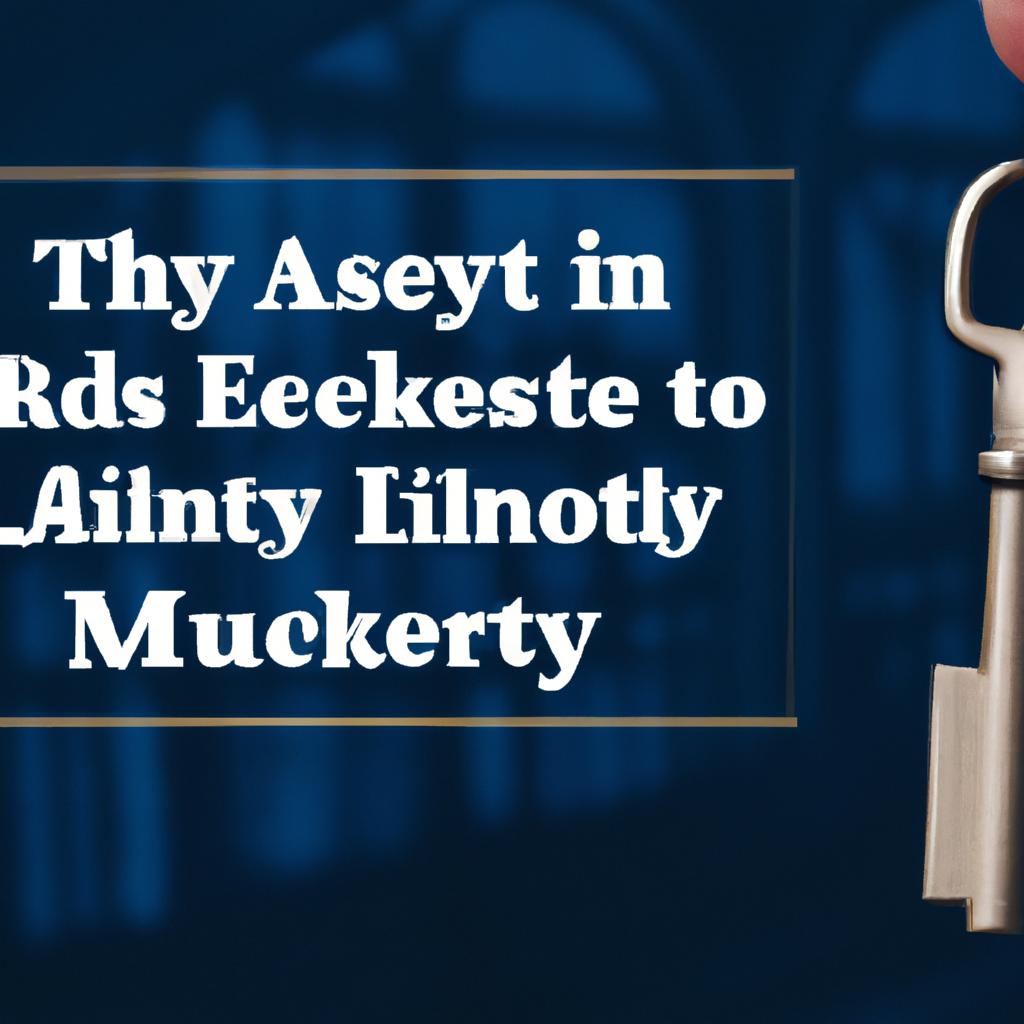Are you familiar with the term small estate affidavit? This legal document, though not widely known, can be a lifesaver when managing a deceased loved one’s estate. Let’s explore the definition and significance of a small estate affidavit.
Grasping the Function of a Small Estate Affidavit
Dealing with the legalities of a deceased person’s estate can be daunting. This is where a small estate affidavit proves its worth. In essence, a small estate affidavit is a legal instrument used to transfer assets from a deceased person’s estate to their heirs, bypassing the probate process. This can save both time and money for everyone involved.
Advantages of a Small Estate Affidavit:
- Efficient and straightforward method to transfer assets
- Evades the protracted and expensive probate process
- Can be finalized relatively swiftly
- Enables heirs to access assets more promptly
It’s crucial to remember that each state has its own specific criteria for a small estate affidavit, so it’s vital to adhere to the guidelines. Generally, the estate’s value must be below a certain limit to qualify for a small estate affidavit. This limit varies by state, so it’s essential to conduct thorough research or consult with a legal expert to ensure compliance.
Essential Elements of a Small Estate Affidavit
Elements of a Small Estate Affidavit
A small estate affidavit is a legal instrument that facilitates the swift and straightforward transfer of assets from a deceased person’s estate to their heirs or beneficiaries. This can be a handy tool for individuals with smaller estates who wish to avoid the time and cost of probate court.
Typically include:
- Identification of the deceased: This section will include the name, date of death, and address of the deceased individual.
- Asset details: A list of the assets that are part of the estate, including any real property, bank accounts, vehicles, or personal belongings.
- Heirs’ declaration: A statement identifying the heirs or beneficiaries who are entitled to receive the estate’s assets.
- Truth affirmation: A statement signed by the affiant, swearing that the information provided in the affidavit is true and accurate to the best of their knowledge.
Advantages of Utilizing a Small Estate Affidavit
Using a Small Estate Affidavit can offer several benefits for individuals looking to settle a deceased person’s estate efficiently and cost-effectively.
One significant benefit is the streamlined and expedited process it offers. By using a Small Estate Affidavit, individuals can avoid lengthy probate proceedings, which can be time-consuming and costly.
Another advantage is the flexibility it provides in terms of estate size. Small Estate Affidavits are specifically designed for estates that fall below a certain threshold, making them a convenient option for smaller estates that do not require more complex legal procedures.
In summary, using a Small Estate Affidavit can save time, money, and stress for individuals looking to distribute assets to heirs and beneficiaries quickly and efficiently.
Guidelines for Successfully Completing a Small Estate Affidavit
If you find yourself needing to complete a small estate affidavit, it’s important to understand the process and requirements to ensure a successful outcome. Here are some useful tips to guide you through the process:
- Understand the legal requirements: Before starting the process, ensure you understand the specific legal requirements in your state for completing a small estate affidavit. Each state has different rules, so it’s important to be aware of what is needed.
- Collect necessary documents: Gather all the required documents, such as the death certificate, inventory of assets, and any other relevant paperwork that may be needed to complete the affidavit.
- Be meticulous and accurate: When filling out the affidavit, ensure to provide all the necessary information accurately. Any errors or missing information could delay the process.
- Consult a legal expert if needed: If you are unsure about any part of the process or have complex estate issues, it may be beneficial to seek legal advice from a professional who specializes in estate planning.
Conclusion
In conclusion, a small estate affidavit is a valuable tool for simplifying the process of transferring assets when a loved one passes away with a smaller estate. By providing a clear and efficient method for settling the estate without having to go through probate court, it can be a great relief for families facing the difficult task of handling their loved one’s affairs. Understanding the meaning and purpose of a small estate affidavit can help individuals navigate this often overwhelming process with more ease and peace of mind. Remember, seeking legal advice from a knowledgeable professional can also ensure that you fully understand the requirements and implications of using this legal tool. rnrn

Unlocking the Mystery: What Does a Small Estate Affidavit Really Mean?
Understanding Small Estate Affidavits
When a loved one passes away, dealing with their estate can be a complex and overwhelming process. One option that can simplify this process is the use of a small estate affidavit. But what exactly does this mean?
What is a Small Estate Affidavit?
A small estate affidavit is a legal document that allows the heirs of a deceased person to claim the assets of the estate without having to go through probate court. This can be a quicker and less expensive alternative to the traditional probate process, which can be lengthy and costly.
When Can a Small Estate Affidavit Be Used?
In order to use a small estate affidavit, certain criteria must be met. These criteria can vary by state, but generally include:
- The total value of the estate must be below a certain threshold (usually around $150,000).
- There must be no valid will or other formal estate planning documents in place.
- All debts of the deceased must have been paid.
- The heirs must be able to prove their relationship to the deceased.
The Benefits of Using a Small Estate Affidavit
There are several benefits to using a small estate affidavit to settle an estate:
- It can save time and money by avoiding the lengthy probate process.
- It can allow heirs to access the assets of the estate more quickly.
- It can be a simpler and more streamlined process, especially for smaller estates.
Practical Tips for Using a Small Estate Affidavit
If you are considering using a small estate affidavit to settle an estate, here are some practical tips to keep in mind:
- Consult with an attorney to ensure that you meet all the necessary criteria.
- Obtain multiple copies of the affidavit to distribute to various entities, such as banks and creditors.
- Be prepared to provide documentation, such as death certificates and proof of relationship to the deceased.
Case Studies
Here are a couple of real-life examples of how small estate affidavits have been used:
Case Study 1: John’s Estate
John passed away without a will, leaving behind a small estate valued at $100,000. His two children were able to use a small estate affidavit to claim the assets of the estate without going through probate court, saving time and money in the process.
Case Study 2: Sarah’s Estate
Sarah had a will in place, but her estate was still below the threshold for probate in her state. Her niece used a small estate affidavit to access the assets of the estate quickly and efficiently, following the guidelines set by the state.
First-hand Experience
As a probate attorney, I have helped many clients navigate the process of using a small estate affidavit to settle an estate. It can be a great option for those dealing with smaller estates and can provide a more straightforward and efficient way to distribute assets to heirs.


